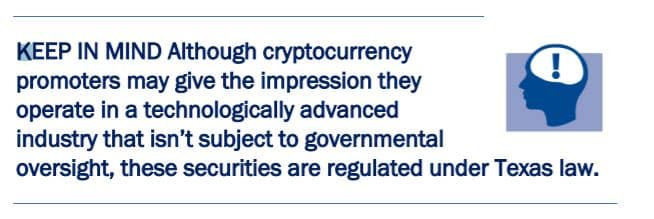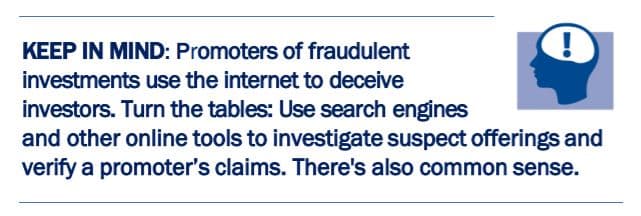The Texas State Securities Board has published a report on cryptocurrency fraud, calling it "widespread". The 14-page report refers to a four-week investigation which the authority carried out "in response to a sharp increase in the number of cryptocurrency investment opportunities being marketed to Texans". The TSSB does not regulate cryptocurrency, but investment offerings that claim to use them. The investigation began on the 18th of December, 2017, and covered 32 different ventures. It uncovered a long list of illegal activity, including: - Not one of the companies was registered to sell securities in Texas - Only 11 provided any physical address - At least 5 of the companies guaranteed unrealistic returns - 6 of the companies paid commission to investors who recruited other investors, which is the hallmark of a Ponzi scheme. The report notes that while in many investment schemes the words token and coin are often used interchangeably, they are not the same thing. Tokens are regarded as securities under US law, and companies that offer securities must be registered.

Source: Texas State Securities Board
It cites the example of BitConnect, the infamous UK-based scam which was served with a cease-and-desist order by the Texan regulator in January 2018. BitConnect promised investors that they could earn up to 600 percent profit in a year by recruiting other investors. Meanwhile, it did not have a whitepaper and did not display the information of any of its team on the official website. The TSSF charged BitConnect with selling unlicensed securities. The report cites several other examples of when it had to take such actions - in fact in the same month that it cut off BitConnect it served another cease-and-desist order to AriseBank. This startup claimed to be “the world’s first decentralized cryptocurrency bank”. The Texan authority took issue with the use of the word 'bank' and the implication that it was registered to perform banking activities in the state. Regarding the current investigation, the report notes: "None of the 32 promoters of Cryptocurrencies being investigated by the agency as part of the sweep were registered to sell securities in Texas." The public is also reminded that investing in the tokens of a startup carries significant risk, something which was not advertised by the companies investigated: "Left unsaid were the inherent risks of cryptocurrencies like increased national and international regulation; the high Volatility in pricing; or the prospect of hackers penetrating security systems and disrupting an investment program or absconding with cryptocurrencies. In fact, at least five of the 32 promoters subject to the targeted investigations appear to have brushed aside concerns about risk by guaranteeing returns on their investment."

Source: Texas State Securities Board


















